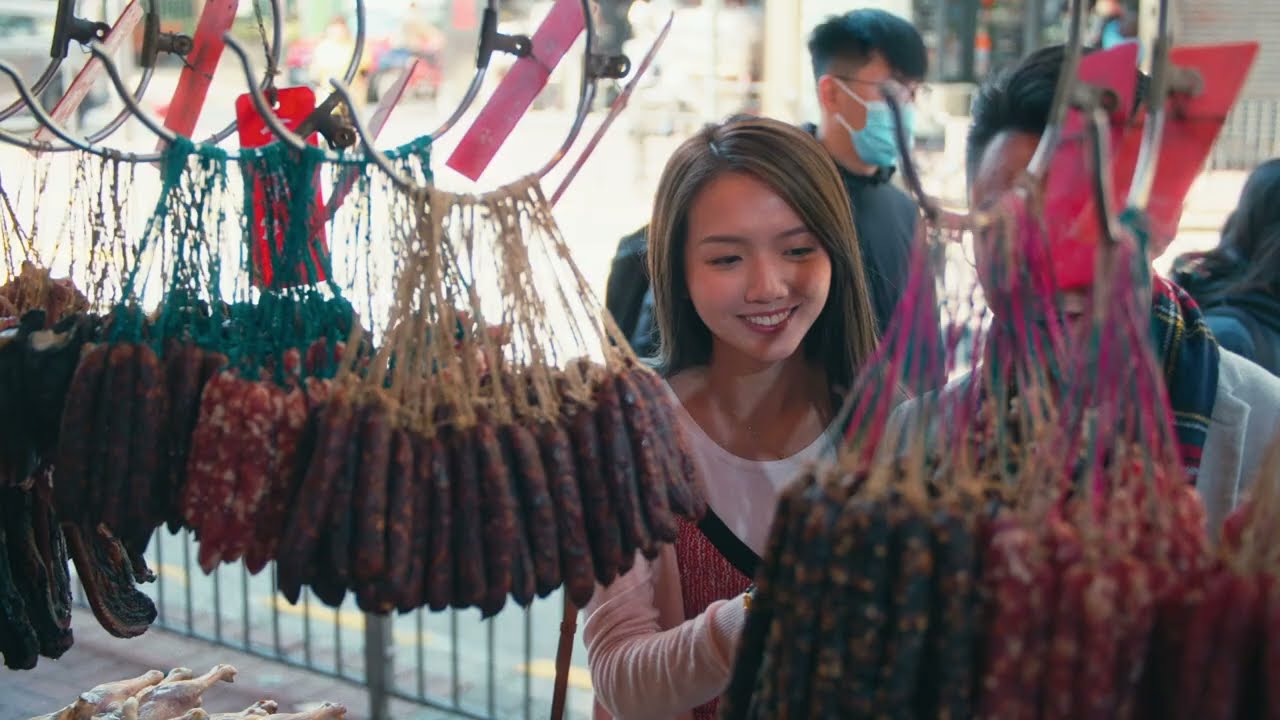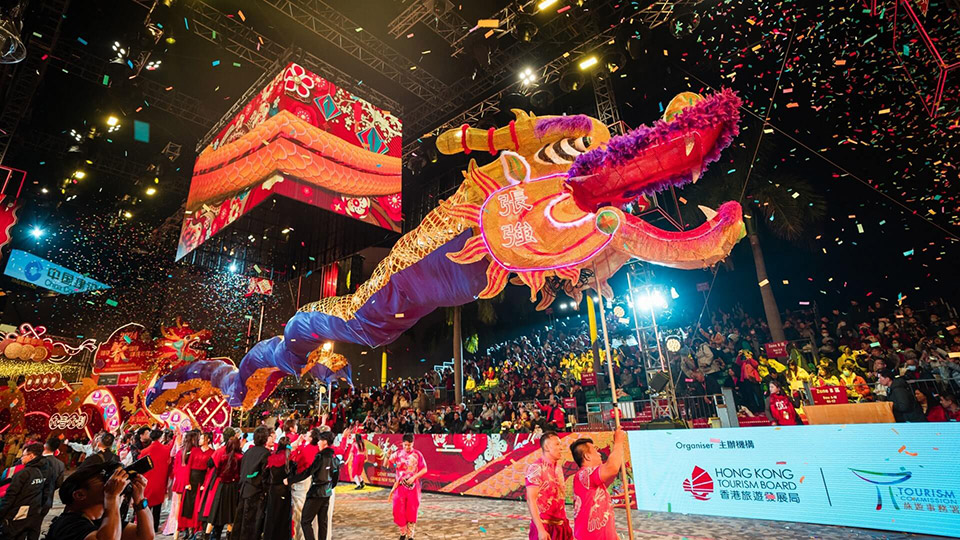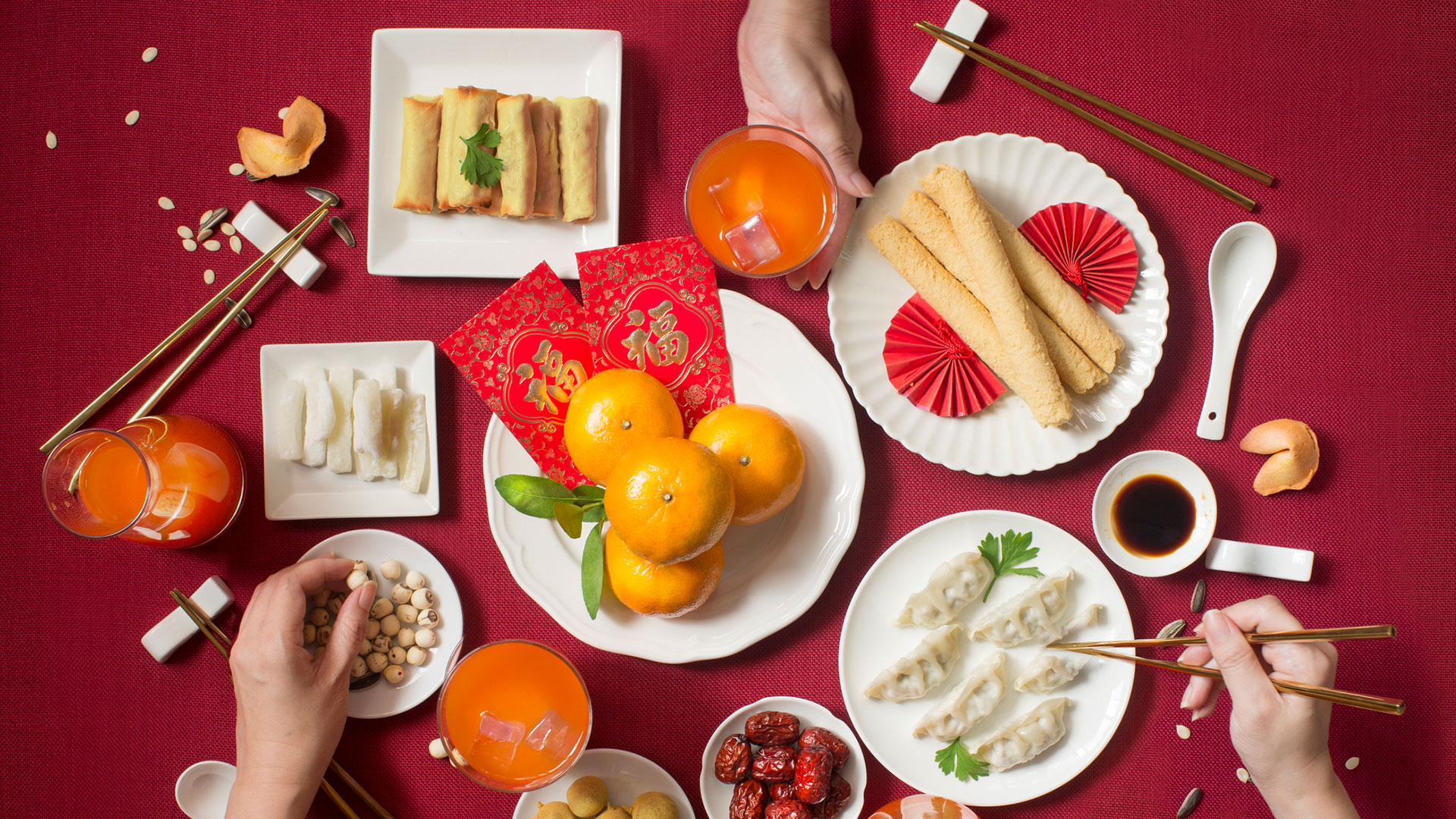
What you eat during Chinese New Year plays an important, symbolic role in bringing about good luck for the year to come. With each traditional dish symbolising different elements believed to usher in a prosperous new year, tuck into these essential eats if you seek a year full of good fortune.

Fish: Prosperity
In Cantonese, the word for fish (魚 – yú) has the same pronunciation as 餘, which means ‘surplus’ or ‘extra’, signifying plenty of prosperity. Only the middle part of the fish should be eaten with the rest eaten the next day, symbolising hope for the year to start and end with surplus. To indulge in a lavish portion of whole fish over this period, visit modern Chinese fine-dining favourite Mott No.32 or 10 Shanghai which is beloved for authentic Shanghainese cuisine.
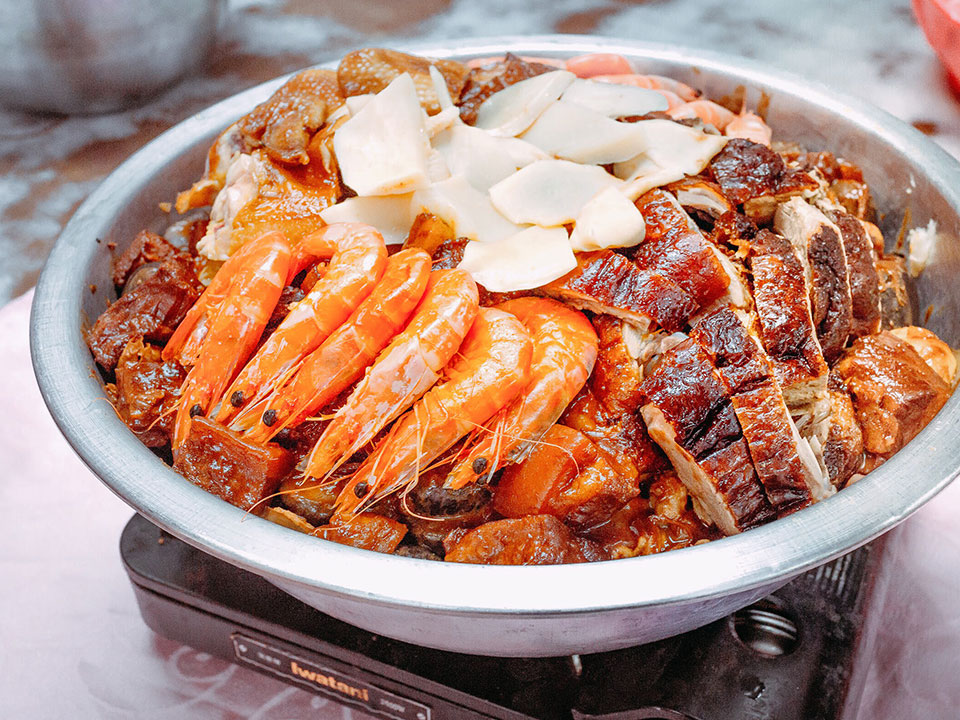
Credit: Tai Foon Hei Restaurant
Poon choi: Unity
Poon choi is a uniquely Hong Kong dish, originating in village communities of the New Territories. Families would contribute whatever food they had to a large communal pot, which would be cooked and eaten over the course of the day and therefore, symbolised unity and togetherness. The ingredients, which can range from pork and bamboo shoots to oyster and abalone (to further emphasise wealth), are prepared separately, then layered in a bowl, soaked in gravy and slowly heated over a stove before serving.

Fat choi: Good Fortune
Fat choi is a controversial algae that is thought of as a vegetable. The English name ‘black moss’ may be less appealing than the Cantonese counterpart, which forms the latter part of the Chinese New Year greeting ‘Kung Hei Fat Choi’, meaning ‘wish you prosperity’! It is often served as an alternative to cellophane noodles along with dried oysters, dried mushrooms and pig’s tongue — all of which symbolise good fortune. You can purchase black moss from Park n Shop, or from one of the many stalls at Sheung Wan’s dried foods markets.

Tangerines: Success
Be particular about the fruit you eat over Chinese New Year. Tangerines and oranges are the perfect lucky treats to gift, display and eat over this period because of their bright colour which resemble golden ingots. The Chinese pronunciation for tangerines sounds like ‘success’ or ‘luck’.

Nin gou: Growth
Hoping for a new job, good grades or growth spurt? Nin gou (glutinous rice cake or Chinese New Year pudding) is what you should be feasting on. Nin gou literally means ‘higher by the year’. In certain regions, nin gou is more savoury but the sweet version is especially popular in Hong Kong, most of which are sweetened with brown sugar and topped with red dates. Creative nin gou with auspicious ingredients such as tangerine, pu-erh tea, red bean and black sugar are easy to find in Hong Kong. High-end hotels like The Peninsula, St. Regis, Hotel Icon and the Mandarin Oriental bring out unique nin gou every year, making perfect gifts for your loved ones.

Tong yuen: Reunion
These delicious little round glutinous rice flour balls come in a variety of flavours and are served in soup or syrup. Loved for their chewy texture and sweet fillings like peanut, black sesame, red bean paste and even chocolate, these treats are best shared with family as their round shapes signify togetherness. To get a taste of these circular treats, visit a Hong Kong dessert shop like the popular Fook Yuen Tong Yun, Chiu Chow Hop Shing Dessert where you can build your own dessert bowl or Michelin-recommended Kai Kai Dessert. You can also buy frozen tong yuen at most local grocery stores.
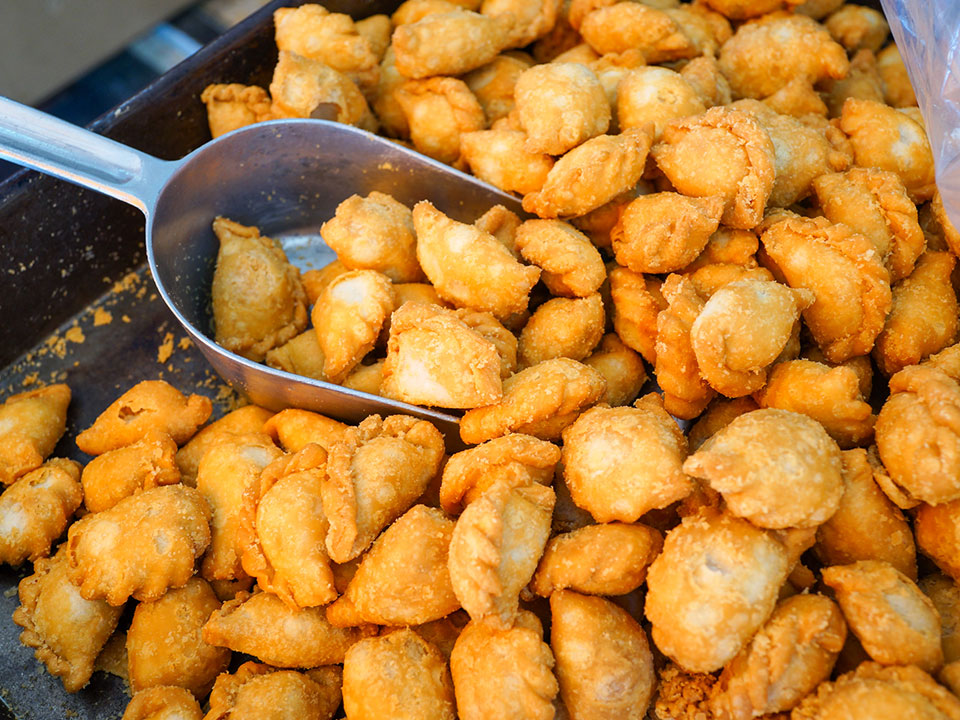
Fried dumplings: Wealth
While dumplings are eaten all year round, yau gok are unique to Cantonese regions during Chinese New Year, believed to bring about wealth and good fortune for the year ahead. The dumplings are fashioned out of glutinous rice dough and filled with savoury ingredients such as pork or mushroom or sweet fillings like peanut or coconut. The dumplings are shaped to resemble ancient Chinese currency and deep-fried.
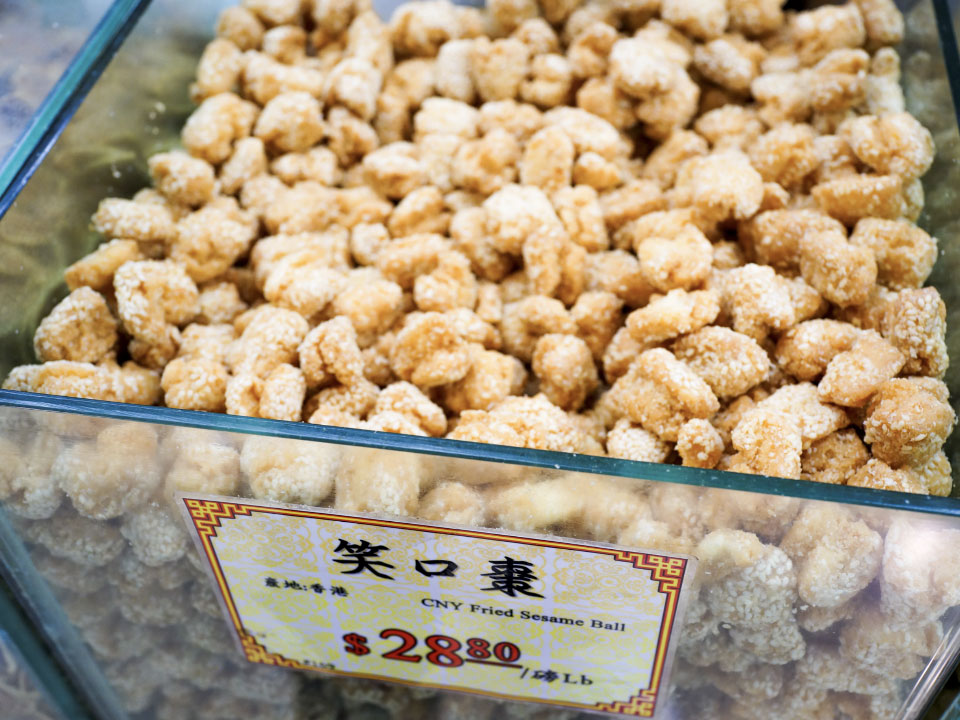
Sesame cookies: Happiness
For a wholesome dose of happiness, give your loved ones some ‘smiling mouth cookies’ or sesame cookies to wish them a joyful and happy life. These balls of happiness are crispy on the outside and chewy on the inside, and sometimes filled with lotus or red bean paste or crushed peanuts. The nostalgic cookies and their variations are usually sold as part of cookie gift boxes from Twinkle Baker Décor, Jenny Bakery or Kee Wah Bakery.
Information in this article is subject to change without advance notice. Please contact the relevant product or service providers for enquiries.
The Hong Kong Tourism Board disclaims any liability as to the quality or fitness for purpose of third party products and services; and makes no representation or warranty as to the accuracy, adequacy or reliability of any information contained herein.



